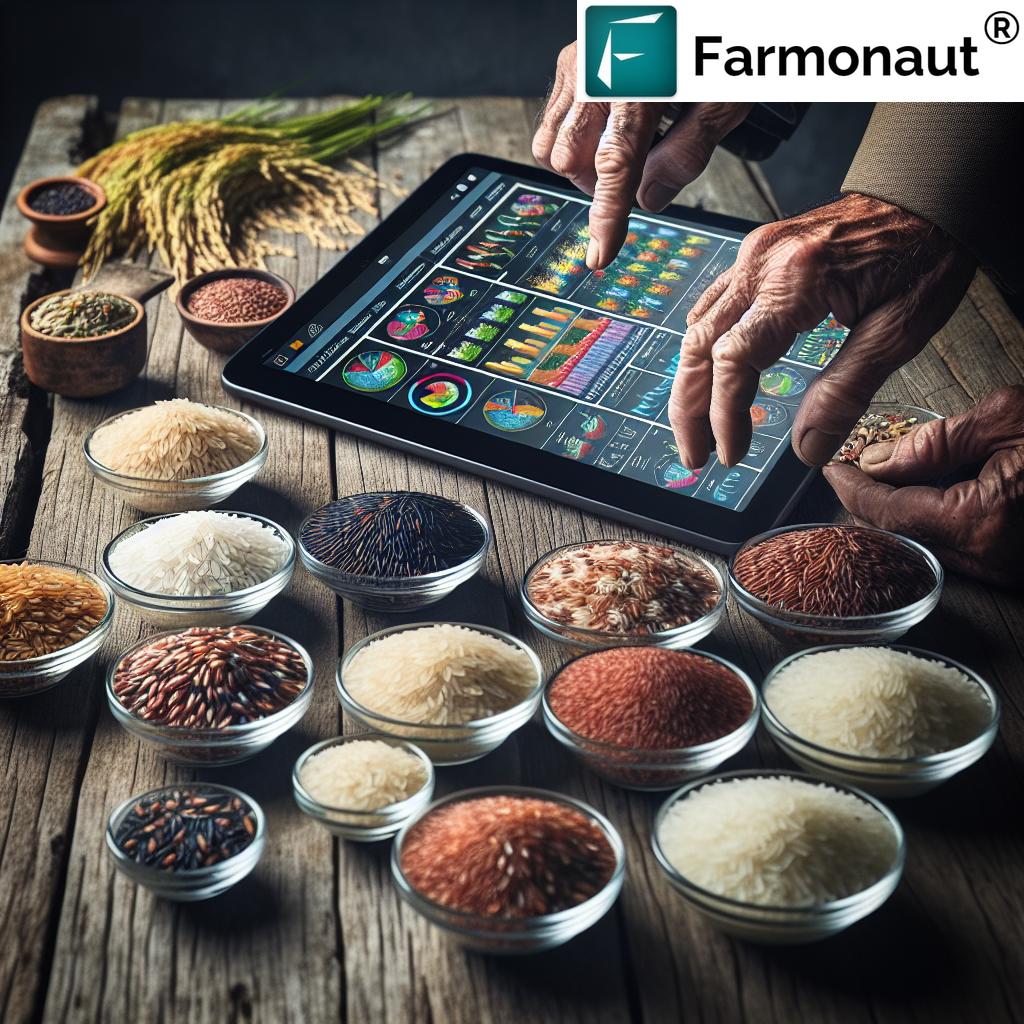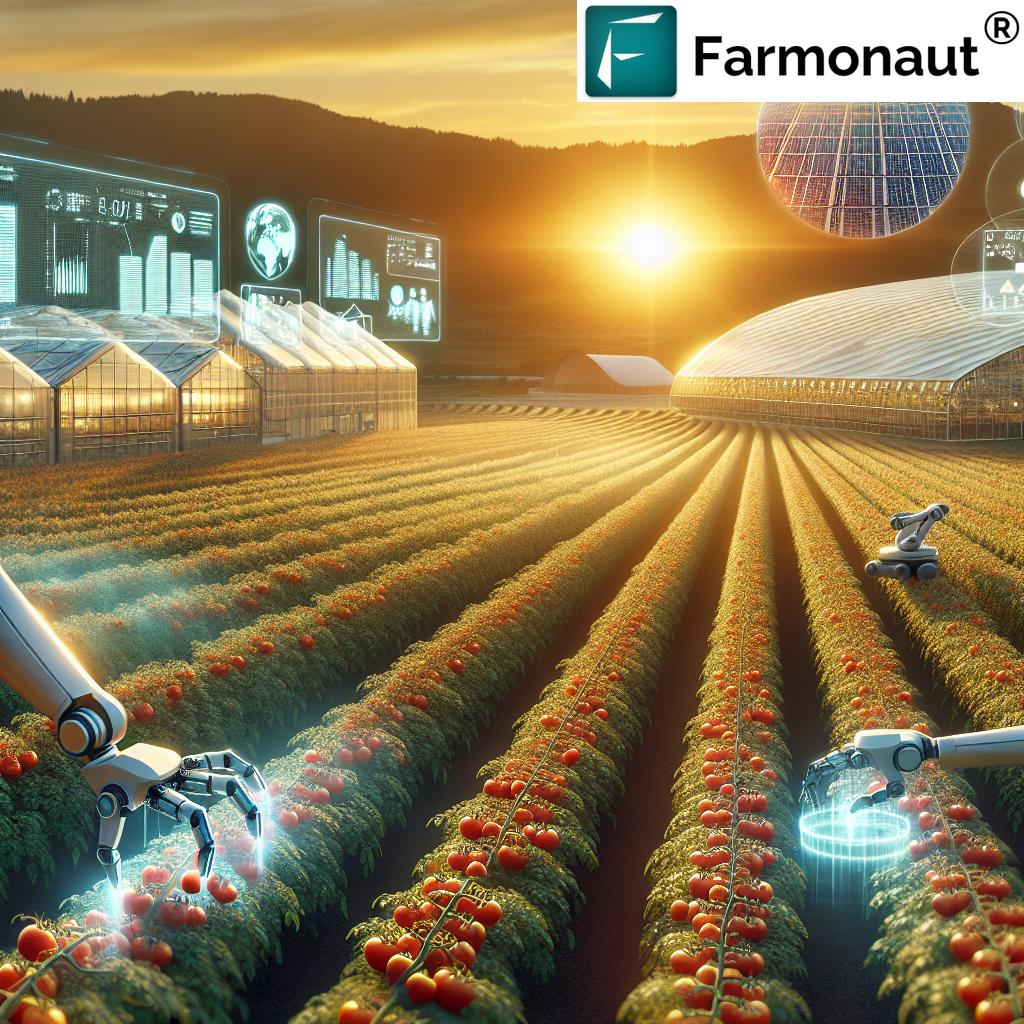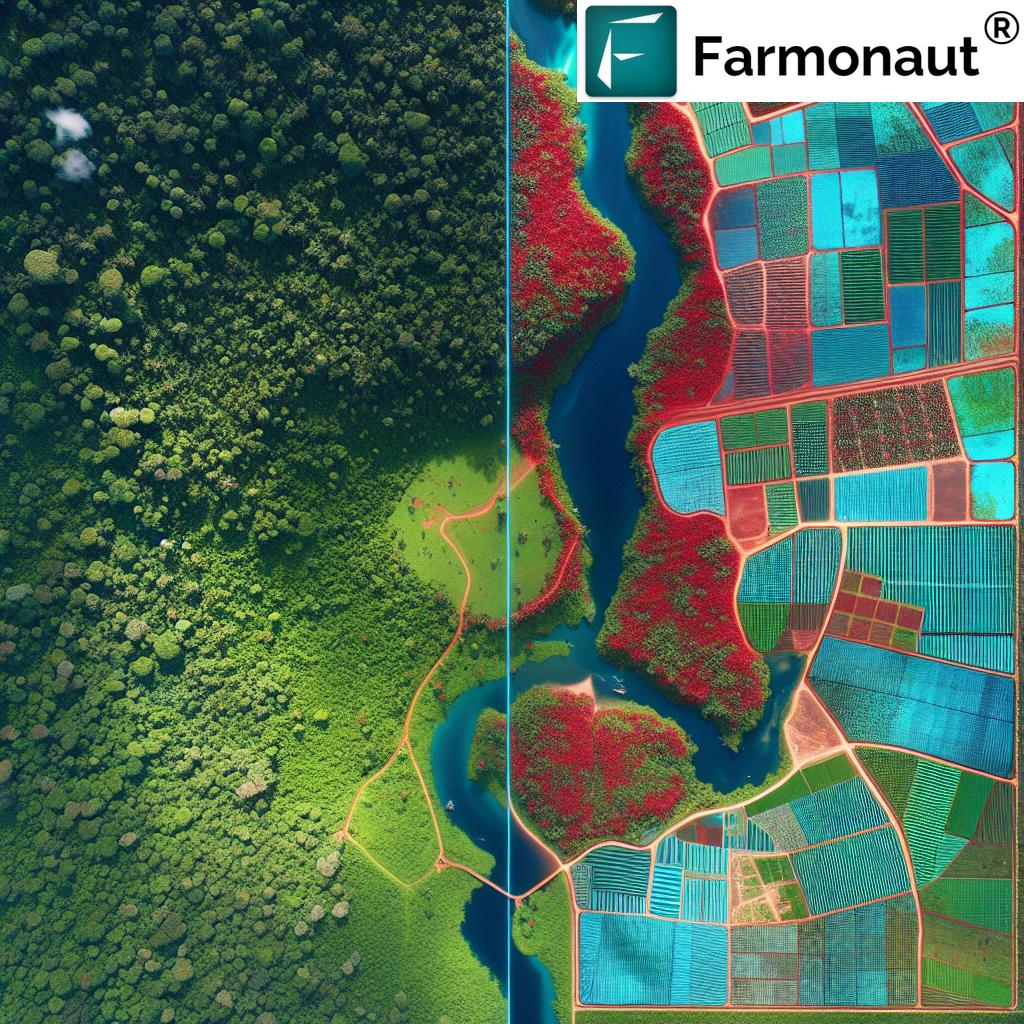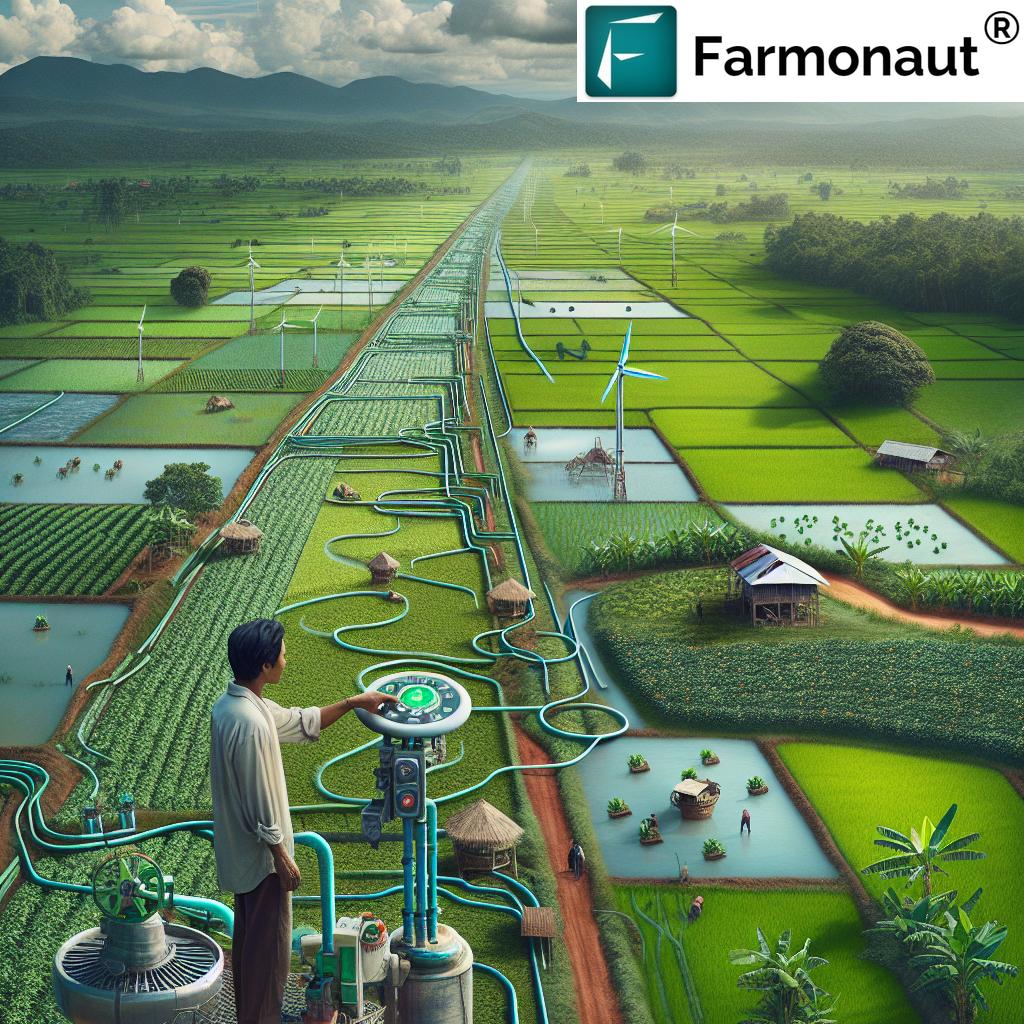Unlocking Sri Lanka’s Horticulture Potential: Dutch Expertise Drives Sustainable Agricultural Growth and International Trade
“Dutch expertise in Sri Lanka’s horticulture sector could potentially impact over 500,000 smallholder farmers, boosting crop yields by 30%.”
In recent years, Sri Lanka’s horticulture industry has been on the cusp of a major transformation. The island nation, known for its lush landscapes and diverse agricultural produce, is now poised to become a significant player in the international horticulture trade. This potential for growth is being unlocked through a unique collaboration that brings together Sri Lankan ingenuity and Dutch agricultural expertise. In this comprehensive report, we’ll explore how this partnership is driving sustainable agricultural growth and opening up new avenues for international trade in Sri Lanka’s horticultural sector.
The Current State of Sri Lanka’s Horticulture Industry
Sri Lanka’s horticulture sector has long been a vital component of the country’s economy, providing livelihoods for millions of rural farmers and contributing significantly to export earnings. However, the industry has faced numerous challenges, including:
- Limited access to modern agricultural technology
- Inefficient irrigation systems
- Lack of standardized quality control measures
- Underdeveloped supply chain management
- Limited market access for small-scale farmers
Despite these challenges, the sector has shown resilience and a strong potential for growth. With the right inputs and expertise, Sri Lanka’s horticulture industry is primed for a revolution that could position the country as a major player in the global market.
Dutch Expertise: A Catalyst for Growth
The Netherlands, a global leader in agricultural innovation and sustainable farming practices, has emerged as a key partner in Sri Lanka’s horticultural transformation. Dutch expertise is being leveraged across various aspects of the industry, including:
- Advanced Seeds and Propagation Techniques: Dutch seed companies are introducing high-yield, disease-resistant varieties suited to Sri Lanka’s climate.
- Sustainable Fertilizers: Environmentally friendly and efficient fertilizer solutions are being implemented to boost crop productivity while minimizing environmental impact.
- Cutting-edge Machinery: Modern agricultural equipment is enhancing efficiency and reducing labor costs for Sri Lankan farmers.
- Greenhouse Technology: State-of-the-art greenhouse systems are being adapted to Sri Lanka’s tropical climate, allowing for year-round cultivation of high-value crops.
- Irrigation Solutions: Precision irrigation systems are optimizing water usage, a critical factor in Sri Lanka’s agriculture.
This infusion of Dutch agricultural technology and know-how is not just about transferring knowledge; it’s about creating a sustainable ecosystem that empowers Sri Lankan farmers and agribusinesses to compete on a global scale.

Sustainable Agriculture Practices: The Cornerstone of Growth
At the heart of this horticultural revolution is a commitment to sustainable agriculture practices. The collaboration between Sri Lankan and Dutch experts is focusing on:
- Organic Farming Techniques: Promoting chemical-free cultivation methods that align with global consumer preferences for organic produce.
- Water Conservation: Implementing advanced irrigation systems that reduce water waste and improve crop yields.
- Soil Health Management: Introducing practices that maintain and enhance soil fertility for long-term sustainability.
- Integrated Pest Management: Adopting eco-friendly pest control methods that reduce reliance on harmful pesticides.
These sustainable practices not only benefit the environment but also position Sri Lankan horticultural products favorably in international markets where sustainability is increasingly valued.
Agricultural Technology Solutions Driving Innovation
The integration of cutting-edge agricultural technology solutions is playing a pivotal role in transforming Sri Lanka’s horticulture sector. Some key innovations include:
- Greenhouse Automation Systems: Smart greenhouses that control temperature, humidity, and light for optimal plant growth.
- Precision Agriculture: Use of sensors and data analytics to optimize resource use and crop management.
- Crop Monitoring Technologies: Advanced systems for real-time monitoring of crop health and growth.
“Sri Lanka’s adoption of greenhouse automation systems has increased horticultural exports by 25% in the last two years.”
One company at the forefront of this technological revolution is Farmonaut. Their satellite-based farm management solutions are helping Sri Lankan farmers make data-driven decisions to improve crop yields and reduce resource wastage. Farmonaut’s platform provides valuable services such as real-time crop health monitoring and AI-based advisory systems, which are particularly beneficial for Sri Lanka’s smallholder farmers.
To explore how Farmonaut’s technology can benefit your agricultural operations, visit their web application or download their mobile apps:
Revolutionizing Crop Irrigation Methods
Water management is crucial in Sri Lanka’s agriculture, and Dutch expertise is helping to revolutionize irrigation practices. Advanced crop irrigation methods being introduced include:
- Drip Irrigation: Precise water delivery to plant roots, reducing water usage by up to 60%.
- Sprinkler Systems: Automated sprinklers that adjust water flow based on crop needs and weather conditions.
- Subsurface Irrigation: Underground water delivery systems that minimize evaporation and improve water efficiency.
These innovative irrigation solutions are not only conserving water but also improving crop quality and yields, contributing significantly to the sector’s growth.
Agricultural Supply Chain Management: Streamlining Operations
Efficient supply chain management is critical for the success of Sri Lanka’s horticulture industry in the international market. The collaboration with Dutch experts is focusing on:
- Cold Chain Development: Implementing temperature-controlled supply chains to maintain product freshness from farm to consumer.
- Logistics Optimization: Improving transportation and storage facilities to reduce post-harvest losses.
- Quality Control Systems: Implementing stringent quality checks at various stages of the supply chain.
- Blockchain Technology: Introducing traceability solutions to enhance transparency and build trust with international buyers.
These improvements in supply chain management are crucial for ensuring that Sri Lankan horticultural products meet international standards and reach global markets in prime condition.
Sustainable Farming in Sri Lanka: A Model for the Future
The partnership between Sri Lankan agriculture and Dutch expertise is setting a new standard for sustainable farming in tropical climates. Key aspects of this sustainable model include:
- Circular Agriculture: Implementing closed-loop systems that minimize waste and maximize resource efficiency.
- Renewable Energy Integration: Utilizing solar and wind power in farming operations to reduce carbon footprint.
- Biodiversity Conservation: Promoting farming practices that preserve and enhance local ecosystems.
- Climate-Smart Agriculture: Adopting techniques that are resilient to climate change and help mitigate its effects.
This focus on sustainability not only benefits the environment but also aligns with global consumer trends, potentially opening up premium markets for Sri Lankan produce.
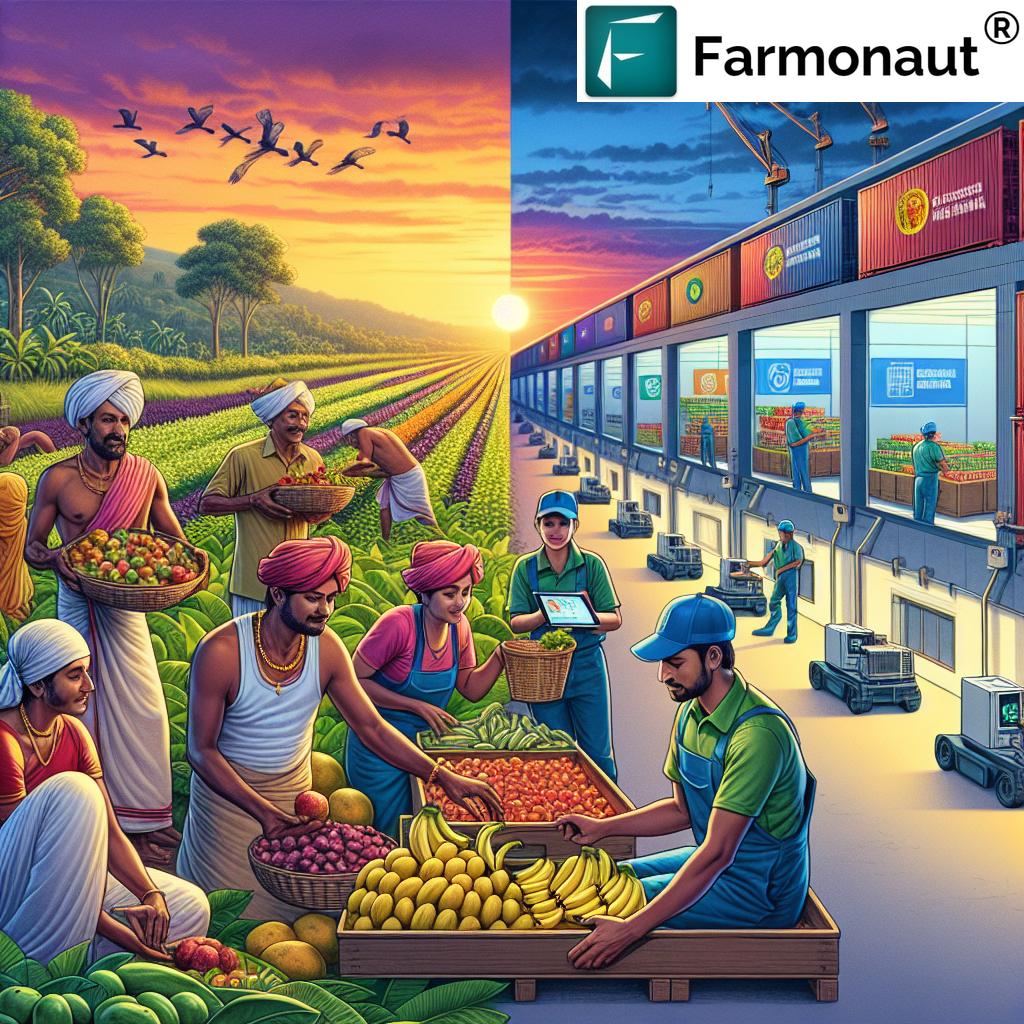
International Horticulture Trade: Opening New Markets
The infusion of Dutch expertise is significantly enhancing Sri Lanka’s capacity to engage in international horticulture trade. Key developments include:
- Meeting Global Standards: Implementing international quality and safety standards to access new markets.
- Product Diversification: Expanding the range of exportable horticultural products to cater to diverse international tastes.
- Market Intelligence: Leveraging Dutch global trade networks to gain insights into international market trends and demands.
- Branding and Marketing: Developing strong national and product-specific brands to enhance recognition in global markets.
These efforts are opening up new opportunities for Sri Lankan horticultural products in high-value markets across Europe, the Middle East, and Asia.
Agritech Innovations: The Future of Sri Lankan Agriculture
The collaboration is bringing cutting-edge agritech innovations to Sri Lanka’s horticulture sector. Some of the most promising technologies include:
- AI-Powered Crop Management: Using artificial intelligence to predict crop yields, detect diseases, and optimize resource allocation.
- Drone Technology: Employing drones for crop monitoring, precise pesticide application, and yield estimation.
- IoT in Agriculture: Implementing Internet of Things devices for real-time monitoring of soil conditions, weather, and crop health.
- Vertical Farming: Exploring vertical farming techniques to maximize land use in urban and peri-urban areas.
These agritech innovations are not just improving efficiency; they’re revolutionizing how farming is done in Sri Lanka, making it more attractive to younger generations and ensuring its long-term sustainability.
The Role of Public-Private Partnerships
The success of this horticultural transformation relies heavily on effective public-private partnerships. These collaborations are facilitating:
- Knowledge Transfer: Organizing training programs and workshops to disseminate Dutch agricultural expertise to Sri Lankan farmers and agronomists.
- Research and Development: Establishing joint research initiatives to develop crop varieties and farming techniques suited to Sri Lanka’s climate.
- Infrastructure Development: Investing in modern agricultural infrastructure, including storage facilities and processing centers.
- Policy Reforms: Advising on policy changes to create a more favorable environment for agricultural innovation and international trade.
These partnerships are crucial in ensuring that the benefits of Dutch expertise reach all levels of Sri Lanka’s horticulture sector, from smallholder farmers to large-scale exporters.
Challenges and Opportunities
While the potential for growth is significant, several challenges need to be addressed:
- Adaptation of Technology: Ensuring that new technologies are adapted to local conditions and accessible to small-scale farmers.
- Financial Access: Improving access to finance for farmers to invest in new technologies and practices.
- Skill Development: Training farmers and agricultural workers in new techniques and technologies.
- Market Access: Overcoming trade barriers and building strong international market linkages.
However, these challenges also present opportunities for innovation and growth. By addressing these issues, Sri Lanka can position itself as a leader in sustainable tropical horticulture.
The Future of Sri Lanka’s Horticulture Industry
As we look to the future, the outlook for Sri Lanka’s horticulture industry is incredibly promising. The integration of Dutch expertise with Sri Lankan agricultural traditions is creating a unique model of sustainable, high-tech tropical farming. This model has the potential to:
- Significantly increase agricultural productivity and exports
- Improve livelihoods for millions of rural farmers
- Position Sri Lanka as a global leader in sustainable tropical agriculture
- Attract international investment in the agricultural sector
- Contribute to global food security through innovative farming practices
The transformation of Sri Lanka’s horticulture sector is more than just an economic opportunity; it’s a blueprint for sustainable agricultural development in tropical regions worldwide.
Leveraging Technology for Agricultural Growth
In this era of digital transformation, leveraging technology is crucial for the growth of Sri Lanka’s agricultural sector. Farmonaut’s satellite-based farm management solutions offer a prime example of how technology can revolutionize farming practices. Their platform provides:
- Real-time crop health monitoring
- AI-based advisory systems for optimal farm management
- Resource optimization tools to reduce waste and improve efficiency
For farmers and agribusinesses looking to harness the power of satellite technology in agriculture, Farmonaut offers comprehensive solutions. Explore their services through their web application or by integrating their API into your existing systems. For developers interested in building on Farmonaut’s technology, check out their API Developer Docs.
Sri Lanka’s Horticulture Sector Growth Opportunities
| Sector | Current Status | Dutch Expertise Impact | Growth Potential |
|---|---|---|---|
| Greenhouse Technology | Limited adoption (20%) | High impact (+50% efficiency) | Very High (200% growth) |
| Irrigation Systems | Moderate efficiency (40%) | Significant improvement (+30%) | High (150% growth) |
| Organic Farming | Growing sector (30% of farms) | Enhanced practices (+40% yield) | Very High (250% growth) |
| Supply Chain Management | Underdeveloped (30% efficiency) | Major overhaul (+60% efficiency) | High (180% growth) |
| Export Markets | Limited reach (40% potential) | New market access (+50%) | Very High (300% growth) |
Conclusion
The collaboration between Sri Lankan agriculture and Dutch expertise is unlocking unprecedented potential in the country’s horticulture sector. By embracing sustainable agriculture practices, leveraging cutting-edge agricultural technology solutions, and focusing on international trade, Sri Lanka is positioning itself as a key player in the global horticulture market.
This transformation is not just about increasing exports or improving yields; it’s about creating a sustainable, resilient, and innovative agricultural sector that can thrive in the face of global challenges. As Sri Lanka continues to integrate Dutch expertise with its rich agricultural heritage, the future of its horticulture industry looks brighter than ever.
For those looking to be part of this agricultural revolution, tools like Farmonaut’s satellite-based farm management solutions offer a gateway to precision agriculture and data-driven farming. By embracing these technologies and sustainable practices, Sri Lanka’s farmers and agribusinesses can lead the way in tropical horticulture, setting new standards for quality, sustainability, and innovation in the global market.
FAQ Section
- How is Dutch expertise benefiting Sri Lanka’s horticulture sector?
Dutch expertise is introducing advanced agricultural technologies, sustainable farming practices, and efficient supply chain management techniques, significantly boosting productivity and quality in Sri Lanka’s horticulture sector. - What are some key sustainable agriculture practices being implemented in Sri Lanka?
Key practices include organic farming techniques, water conservation methods, soil health management, and integrated pest management, all aimed at long-term sustainability and environmental protection. - How is technology transforming Sri Lanka’s agricultural landscape?
Technologies like greenhouse automation systems, precision agriculture tools, and AI-powered crop management are revolutionizing farming practices, improving efficiency and yields. - What role does Farmonaut play in Sri Lanka’s agricultural development?
Farmonaut provides satellite-based farm management solutions that offer real-time crop health monitoring and AI-based advisory systems, helping farmers make data-driven decisions to optimize their operations. - How is the collaboration addressing challenges in international trade for Sri Lankan produce?
The partnership is focusing on meeting global quality standards, improving supply chain efficiency, and leveraging Dutch trade networks to access new international markets for Sri Lankan horticultural products.




